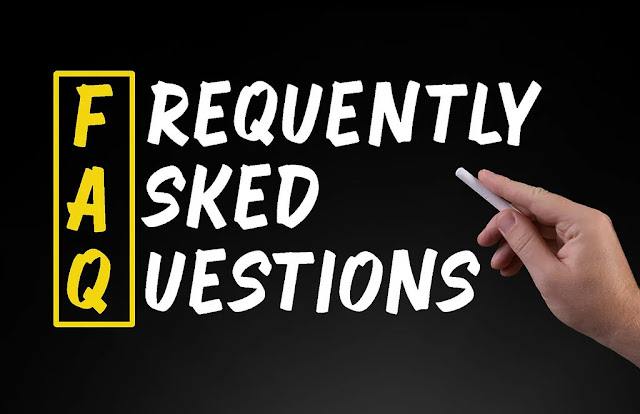Insurance FAQ - Frequently Asked Questions
These are some important Insurance FAQ asked and you must be seeking the answer of below questions.
Which is Better—Actual Cash Value or Replacement Cost?
Actual Cash Value
Actual cash value is an amount equivalent to the replacement cost (see below) of the property or items at the time of loss or damage, less depreciation.
Replacement Cost
Replacement cost is an amount equivalent to the value of rebuilding your home using the same or similar materials, or replacing your possessions, without adjusting for depreciation.
Therefore a replacement cost policy is better because there is no deduction for depreciation, although the premium is likely to be higher because the insurance company is exposed to a greater potential payout in the event of a claim.
Many insurance policies provide replacement cost coverage for your home and actual cash value coverage for your contents (personal belongings), although you may be able to upgrade the policy to provide replacement protection for your contents as well.
Disclaimer: This article is provided for informational purposes only and should not be considered a substitute for professional advice. Please read your policy carefully and talk with your insurance agent to determine your actual coverage, which may differ from that described above.
What Perils are Covered by Homeowners Policies?
Basic Homeowners Insurance
A basic homeowners insurance policy generally provides protection against 11 listed perils:
1. Breakage of glass constituting part of the building.
2. Damage caused by vehicles.
3. Damage caused by aircraft.
4. Explosion.
5. Fire or lightning.
6. Loss of property removed from premises endangered by fire or other perils.
7. Riot or civil commotion.
8. Smoke.
9. Theft.
10 .Vandalism and malicious mischief.
11. Windstorm or hail.
Broad Homeowners Insurance
A broad homeowners insurance policy generally provides protection against the 11 perils covered by a basic policy (detailed above), plus seven additional perils:
1. Accidental discharge, leakage, or overflow of water or steam from within a plumbing, heating, or air conditioning system or domestic appliance.
2. Collapse of buildings or part thereof.
3. Falling objects.
4. Freezing of plumbing, heating and air conditioning systems and domestic appliances.
5. Sudden and accidental damage from artificially generated currents to electrical appliances, devices, fixtures and wiring (excluding TV and radio tubes).
6. Sudden and accidental tearing apart, cracking, burning, or bulging of a steam or hot water heating system or of appliances for heating water.
7. Weight of ice, snow and sleet.
Special Homeowners Insurance
A special homeowners insurance policy provides comprehensive coverage (see below) for your home and broad coverage (see above) for your contents.
Comprehensive Homeowners Insurance
A comprehensive policy covers your home and contents for all perils except earthquake, flood, nuclear accident, war, and any other perils specified in the policy. It is the most comprehensive type of homeowners policy.
Disclaimer: This article is provided for informational purposes only and should not be considered a substitute for professional advice. Please read your policy carefully and talk with your insurance agent to determine your actual coverage, which may differ from that described above.
Is Earthquake or Flood Damage Covered?
A standard homeowners insurance policy does not cover earthquake or flood damage. See list of perils covered by homeowners insurance.
Note that insurance policies generally distinguish between water damage arising from leaking pipes or sprinkler systems in your home (which you may be covered for) and flooding caused by groundwater and weather events. You should check your policy to determine your particular coverage.
Earthquake Insurance FAQ
Earthquake insurance can be purchased separately from most insurance companies and is generally issued as an endorsement to your homeowners insurance policy.
Flood Insurance
Flood insurance can be purchased separately from some insurance companies. Depending on the location of your home, you may qualify for federal flood insurance. For more information about flood insurance, visit the National Flood Insurance Program.
Disclaimer: This article is provided for informational purposes only and should not be considered a substitute for professional advice. Please read your policy carefully and talk with your insurance agent to determine your actual coverage, which may differ from that described above.
How are Premiums Calculated?
Insurance FAQ - Apart from the obvious factors such as the capital value of your house and belongings, insurance companies consider a number of other factors when determining your premium. These include:
The Location of Your Home
Certain areas have are more likely to experience extreme weather and/or other natural disasters such as hurricanes, earthquakes, or flooding. This is likely to increase your premium. Conversely, if your home is located near a fire hydrant or fire station, your premium may be lower.
The Age and Type of Construction of Your Home
If your house is new, contains approved wiring, or is constructed materials suitable for the climate in your area, you may receive a discount on your premium.
The Security and Safety Features Installed in your Home
If your home has smoke alarms, sprinklers, burglar alarms, or dead-bolt locks your insurance premiums may be lower.
The Deductible
The deductible is the amount you have to pay out of pocket for each claim. Choosing a higher deductible will reduce your premium.
Disclaimer: This article is provided for informational purposes only and should not be considered a substitute for professional advice. Please read your policy carefully and talk with your insurance agent to determine your actual coverage, which may differ from that described above.









